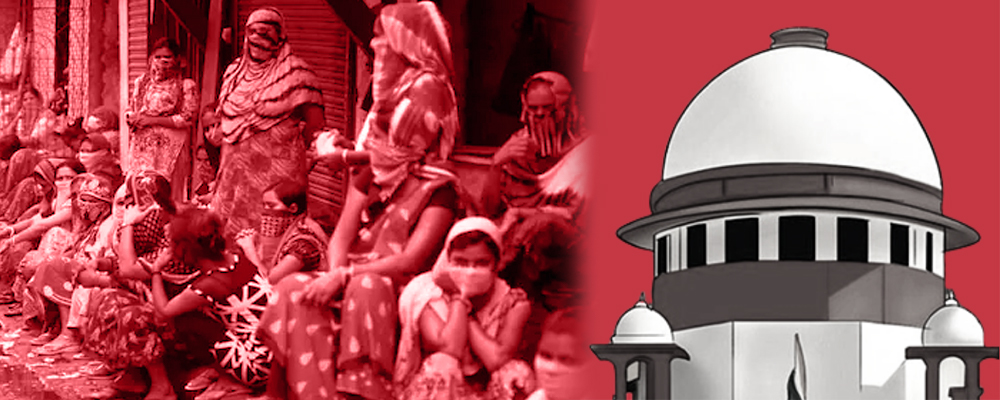Prostitution in India was considered to be the oldest profession, running down through the medieval ages.
It is the profession of a sex worker called a prostitute, usual, a woman earns money by having paid sex with people, though at the present time men are engaged in prostitution work too. It is the practice of promiscuous and mercenary sexual association with emotional indifference. However, due to their numerical dominance, this article is based to focus on women commercial sex workers.
There are various reasons why a woman takes up prostitution work, but most of them are poverty and unemployment, also its been seen women from remote areas have been known to fall prey to unscrupulous brokers who guarantee them decent job opportunities before selling them as sex workers, but the problem is their profession was never respected and hold a strong opinion by every people in the society, sometimes including the person who office visits to those sex workers. The prostitute and their profession were always being harassed by police, their customers, and sometimes by their bosses too.
Every profession should be equally respected regardless of their work, but shouldn’t be involved in any kind of activity which results in a criminal offense.
The biggest question here is whether prostitution is legal in India?
The answer to this question was always in the dilemma of both yes and no and was always confusing as per the stated facts prostitution was never illegal, as it was not specifically mentioned that the prostitution work should be punishable by law, but the few activities related to the prostitution was punishable like running a brothel, trafficking, soliciting, and pimping are punishable by law under the Immoral Traffic (Prevention) Act. Also, The Indian Penal Code 1860 has sections 372 and 373 that deal with prostitution, but they only apply to child prostitution.
Need A Legal Advice
The internet is not a lawyer and neither are you. Talk to a real lawyer about your legal issue

Though sections 366A, 366B, and 370A of the IPC deal with the punishment of minor girl procreation, foreign girl importation for sex, and exploitation of a trafficked person, respectively. As a result, the scope of the IPC’s prostitution laws is quite limited.
But on May 19, the Supreme Court passed a judgment, that legal protection against the sex workers from the sexual harassment should be taken seriously, and the police have to take all the complaints and FIR from the sex workers in a strict manner. The indifference with which the police generally treat sex workers’ complaints as “normal occupational outcomes” would no longer be tolerated, though a law against workplace harassment already exists, which makes any form of distress- physical, emotional, or sexual — that prevents a woman from doing her job a criminal offense.
Further to the Supreme Court’s latest edicts, any sex worker who is a victim of sexual assault will obtain the same services as any other sexual assault survivor, including immediate medical care. Furthermore, recognizing sex work as a profession may aid in improving the poor state of healthcare facilities and the arising vulnerabilities that sex workers face. Medical benefits, as well as a variety of other benefits currently enjoyed by employing people in our country, may become a reality in the near future.
Though The Supreme Court’s directions are only the first step toward removing some of the long-standing barriers that sex workers have faced. Survival is the top priority in a country like India, which is severely afflicted by poverty, destitution, hunger, and inequalities. The morality or immorality of a job’s nature does not, and should not, play a role in constructing vocation hierarchies. India’s constitution guarantees their citizens justice, equality, and liberty as a democratic country. Unfortunately, sex workers have been structurally excluded from “equal opportunities” dimensions. It is past time to put an end to such flagrant disregard for human rights and dignity.
Lead India believes in equal rights and equal opportunity, and respects every kind of profession. If you’re seeking any kind of legal help or advice you may contact us.




